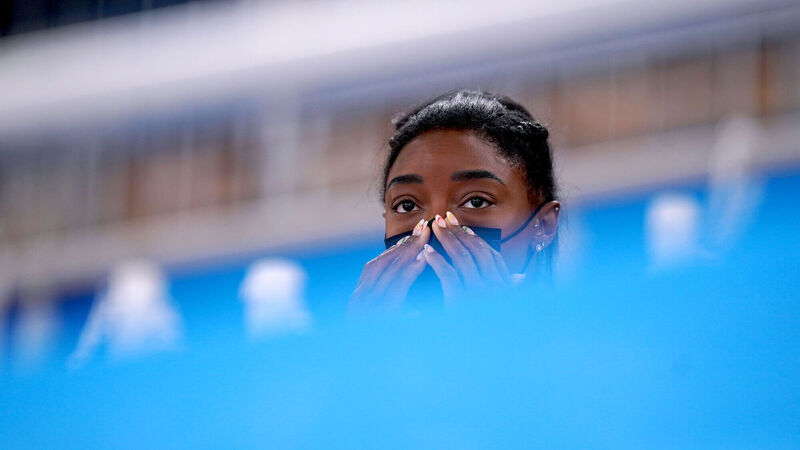Michael Moynihan: Sport, cruelty, and the cruelty of sport

Simone Biles watches the Women's Uneven Bars Final from the stands at the Ariake Gymnastics Centre on the ninth day of the Tokyo 2020 Olympic Games. Picture: Mike Egerton/PA Wire.
Try from €1.50 / week
SUBSCRIBE
Simone Biles watches the Women's Uneven Bars Final from the stands at the Ariake Gymnastics Centre on the ninth day of the Tokyo 2020 Olympic Games. Picture: Mike Egerton/PA Wire.
The cruelty of sport.
This is one of the foundational cliches of sports-talk, one of the load-bearing pillars that was in place from the very start of sports discourse and which has served us well ever since.
Already a subscriber? Sign in
You have reached your article limit.
Annual €130 €80
Best value
Monthly €12€6 / month
Introductory offers for new customers. Annual billed once for first year. Renews at €130. Monthly initial discount (first 3 months) billed monthly, then €12 a month. Ts&Cs apply.
Newsletter
Latest news from the world of sport, along with the best in opinion from our outstanding team of sports writers. and reporters
Newsletter
Latest news from the world of sport, along with the best in opinion from our outstanding team of sports writers. and reporters
Monday, February 9, 2026 - 10:00 PM
Monday, February 9, 2026 - 5:00 PM
Monday, February 9, 2026 - 9:00 PM
© Examiner Echo Group Limited